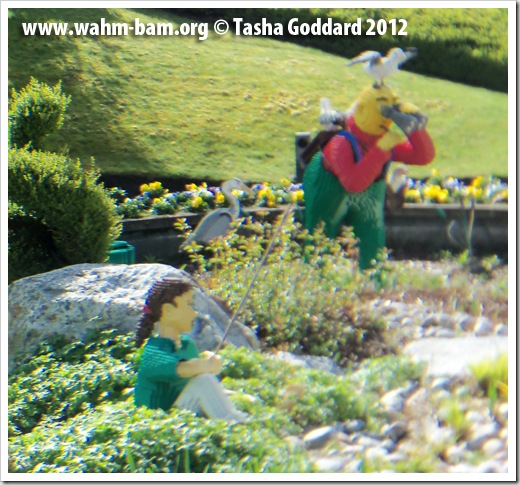The dangers of stranger danger
The other day, we were walking into town with one of RoRo’s friends, on our way to take her and her friend to Dramarama (one of the few after-school activities that RoRo has decided to keep on for the moment – that’s another post in itself, actually). LaLa was running slightly ahead and RoRo’s friend called out ‘No! Stranger danger! Stop!’ I responded with ‘It’s fine. She’s fine,’ because she was. She was running a little ahead, but she knew where she was going and she knew where to stop – there are plenty of situations where she’s not allowed to run ahead, but these are all to do with staying safe from traffic.
This automatic idea that anyone you don’t know is a danger shocked me. I did consider talking to RoRo’s friend about it, but thought I probably shouldn’t try to contradict her own parents’ instructions and potentially confuse her, though it is, of course, possible that this was a misinterpretation of her parents’ instructions. But RoRo agreed with her and said ‘Yes. We talked about that at playgroup,’ and it brought back my concerns about the whole stranger danger issue – something I was worrying about for RoRo, about three years ago (do read it – there are lots of interesting comments, as well as the post itself).
Both RoRo and LaLa started off very friendly. They would say ‘Hello’ to anyone and everyone. Gradually this got a bit less, probably because so few people actually responded to them. Other children would look at them with confusion, particularly when RoRo and LaLa were quite young, perhaps because they were shocked at such a young child being able to speak, I’m not sure. What worries me, though, is that they weren’t responding because they were trying to parse the stranger danger message – I must not talk to strangers. This child is a stranger. But she’s just a child. She must be OK? But she’s a stranger. Do not talk to strangers. … … And I suppose some adults don’t respond because they have switched themselves off to children and don’t feel the need to listen to them. (Really? How awful is that?) More worrying is the possibility that they don’t respond because they’re worried that someone will accuse them of acting inappropriately or something.
RoRo has got back to talking to more people again and will often tell people working on tills in shops all about what she’s going to do or has been doing. She does seem to pick the strangers she’ll talk to – happily talking to shop staff and to other parents and less likely to just run up to someone on their own and start talking. But she’s perfectly content to strike up a conversation while waiting for a bus, or on a train. And I like this. I want them to be friendly. I don’t want them to hide away if someone says ‘Hello’. I don’t want them to spend their childhoods running around in fear of largely imaginary bogeymen.
Yes, there are nasty people out there. There always have been. Not talking to anyone except your immediate family is not the answer. What’s wrong with the messages we grew up with? Don’t take sweets from strangers. Don’t get into cars with strangers. That’s all they need.
What do you think? Do you tell your children not to talk to strangers? Do you worry that this could make them unfriendly and isolated?


Leave a Reply